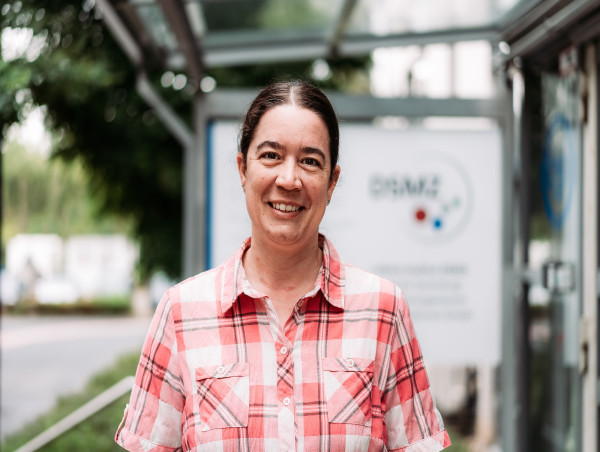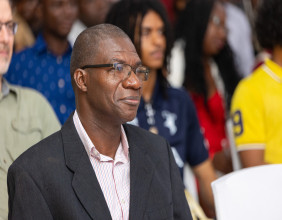BRAUNSCHWEIG, LOWER SAXONY, GERMANY, December 18, 2023 /EINPresswire.com/ -- In microbiology, microorganisms may be named after well-known scientific personalities to honour them. Such eponyms are common in the natural sciences, such as pasteurisation (after the microbiologist Louis Pasteur).
In the recently published study "The gender gap in names of prokaryotes honouring persons", Dr Heike M. Freese and Associate Professor Dr Markus Göker from the Leibniz Institute DSMZ-German Collection of Microorganisms and Cell Cultures GmbH, in collaboration with three other researchers, investigated the origin of the names of 23,315 prokaryotes, of which 2,018 names honour persons. Prokaryotes are microorganisms without a nucleus and include both bacteria and archaea. The researchers expected a gender discrepancy even before the study began. However, they also wanted to investigate whether the situation had improved in recent decades, as the proportion of women in microbiology has increased considerably.
A comparison of all honoured persons from 1823 to 2022 shows a large difference between names honouring a man (84.4 %) and names honouring a woman (14.8 %). Although more prokaryotes have been discovered and named in recent decades due to methodological advances, only four per cent of those honoured in 1993 and 2015 were women, compared to zero per cent in 1991. Overall, the gender gap has barely narrowed since the first woman was honoured in 1947. However, the number of women whose contributions to microbiology could have been recognised has increased considerably over time. This gender gap may be due to the fact that many of the highest and most prestigious positions continue to be held by men.
This study is the first on the naming of prokaryotes from a gender perspective and aims to motivate other researchers to gradually close the gender gap. Naming prokaryotes after females could at least increase the visibility of women who have contributed to microbiology or other sciences, helping young women to find role models. There are a sufficient number of outstanding female scientists to choose from when naming species.
Publication
Freese HM, Giner-Pérez L, Oren A, Göker M, Arahal DR. The gender gap in names of prokaryotes honouring persons. Int J Syst Evol Microbiol. 2023 Nov;73(11). doi: 10.1099/ijsem.0.006115.
Press contact:
PhDr. Sven-David Müller, Head of Public Relations, Leibniz Institute DSMZ-German Collection of Microorganisms and Cell Cultures GmbH
Phone: ++49 (0)531/2616-300
Mail: [email protected]
About the Leibniz Institute DSMZ
The Leibniz Institute DSMZ-German Collection of Microorganisms and Cell Cultures is the world's most diverse collection of biological resources (bacteria, archaea, protists, yeasts, fungi, bacteriophages, plant viruses, genomic bacterial DNA as well as human and animal cell lines). Microorganisms and cell cultures are collected, investigated and archived at the DSMZ. As an institution of the Leibniz Association, the DSMZ with its extensive scientific services and biological resources has been a global partner for research, science and industry since 1969. The DSMZ was the first registered collection in Europe (Regulation (EU) No. 511/2014) and is certified according to the quality standard ISO 9001:2015. As a patent depository, it offers the only possibility in Germany to deposit biological material in accordance with the requirements of the Budapest Treaty. In addition to scientific services, research is the second pillar of the DSMZ. The institute, located on the Science Campus Braunschweig-Süd, accommodates more than 85,000 cultures and biomaterials and has around 220 employees. www.dsmz.de
The Leibniz Association
The Leibniz Association connects 97 independent research institutions that range in focus from the natural, engineering and environmental sciences via economics, spatial and social sciences to the humanities. Leibniz Institutes address issues of social, economic and ecological relevance. They conduct basic and applied research, including in the interdisciplinary Leibniz Research Alliances, maintain scientific infrastructure, and provide research-based services. The Leibniz Association identifies focus areas for knowledge transfer, particularly with the Leibniz research museums. It advises and informs policymakers, science, industry and the general public. Leibniz institutions collaborate intensively with universities – including in the form of Leibniz ScienceCampi – as well as with industry and other partners at home and abroad. They are subject to a transparent, independent evaluation procedure. Because of their importance for the country as a whole, the Leibniz Association Institutes are funded jointly by Germany’s central and regional governments. The Leibniz Institutes employ around 20,500 people, including 11,500 researchers. The financial volume amounts to 2 billion euros. www.leibniz-gemeinschaft.de
PhDr. Sven David Mueller, M.Sc.
Leibniz-Institut DSMZ
email us here
Visit us on social media:
Facebook
Twitter
LinkedIn
Instagram
YouTube
Other






